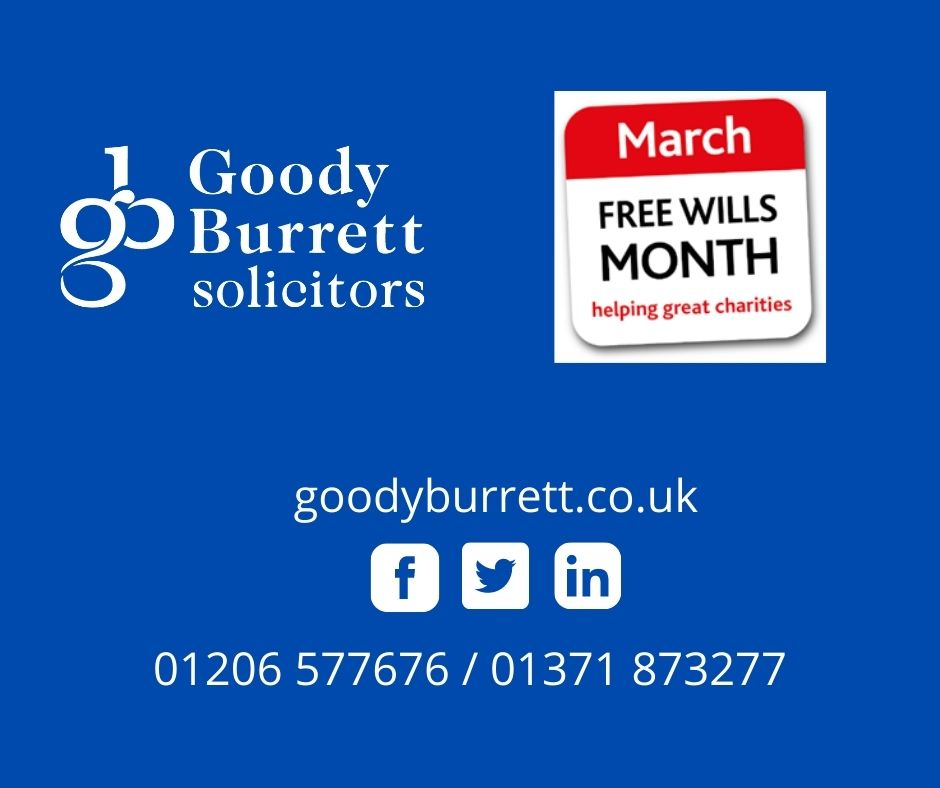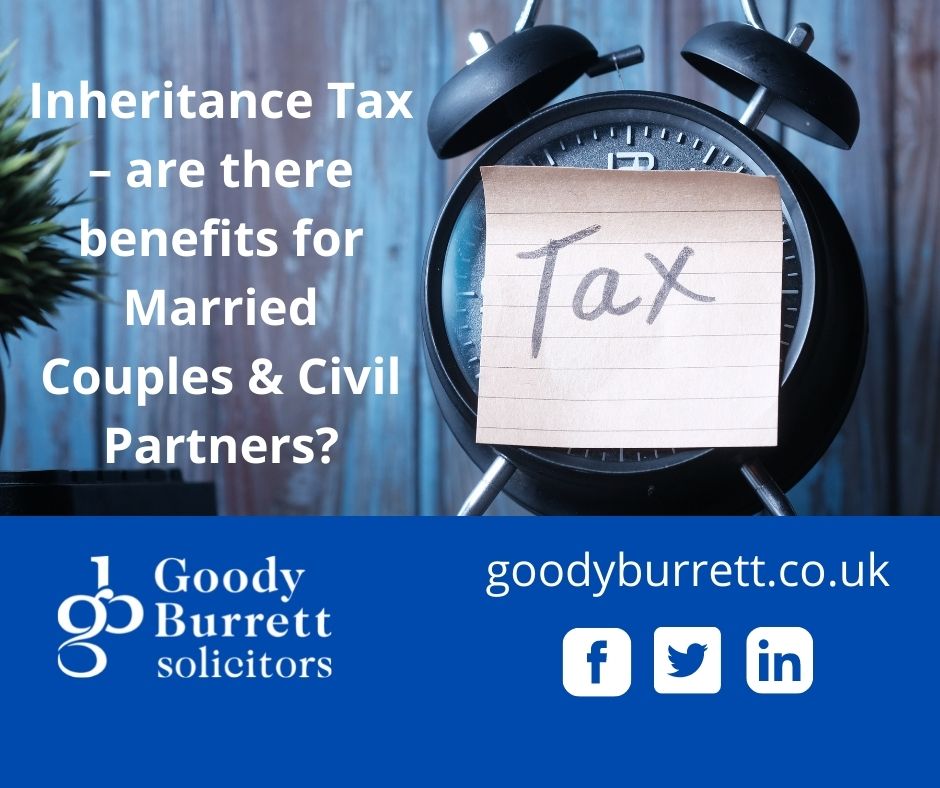
Free Wills Month
Free Wills Month
GoodyBurrett are proud to be working as one of the Legal Partners to the Free Wills Month campaign again this year.
Free Wills Month brings together groups of well-loved charities and offers the public the chance to have their simple Wills written for free.
As well supported as some charities appear to be what most people do not know is that they rely on legacies for up to half of their income.
As such the fundraising that is done by charities is vital to the charities ability to keep running and in all cases to keep providing and improving the services that are so vital to the communities they serve.
A gift in your Will to a charity will make a huge difference to your chosen charity for years to come.
An amazing £59,650.00 of future income was raised last year.
In addition to the meaningful difference your gift will make, during “Free Wills Month” in March the cost of having a simple Will drawn up is free in order that we can support you to support your chosen charity.
Slots for Free Wills Month always fill up fast so we advise you to contact your local office without delay once the scheme has opened on Tuesday the 1st of March. Participants must be over 55 or if taking out mirror Wills one party has to be over 55.
Our Solicitors will work with you to make the process as straight forward as possible and can take you through all the options regarding the best way for you to remember your chosen Charity in your Will.
We look forward to your support.
|
Colchester Office 01206 577676 |
Dunmow Office 01371 873277 |
For more information on Free Wills Month
Contact either of our offices, Colchester 01206 577676 or Dunmow 01371 873277 or you can email [email protected]



